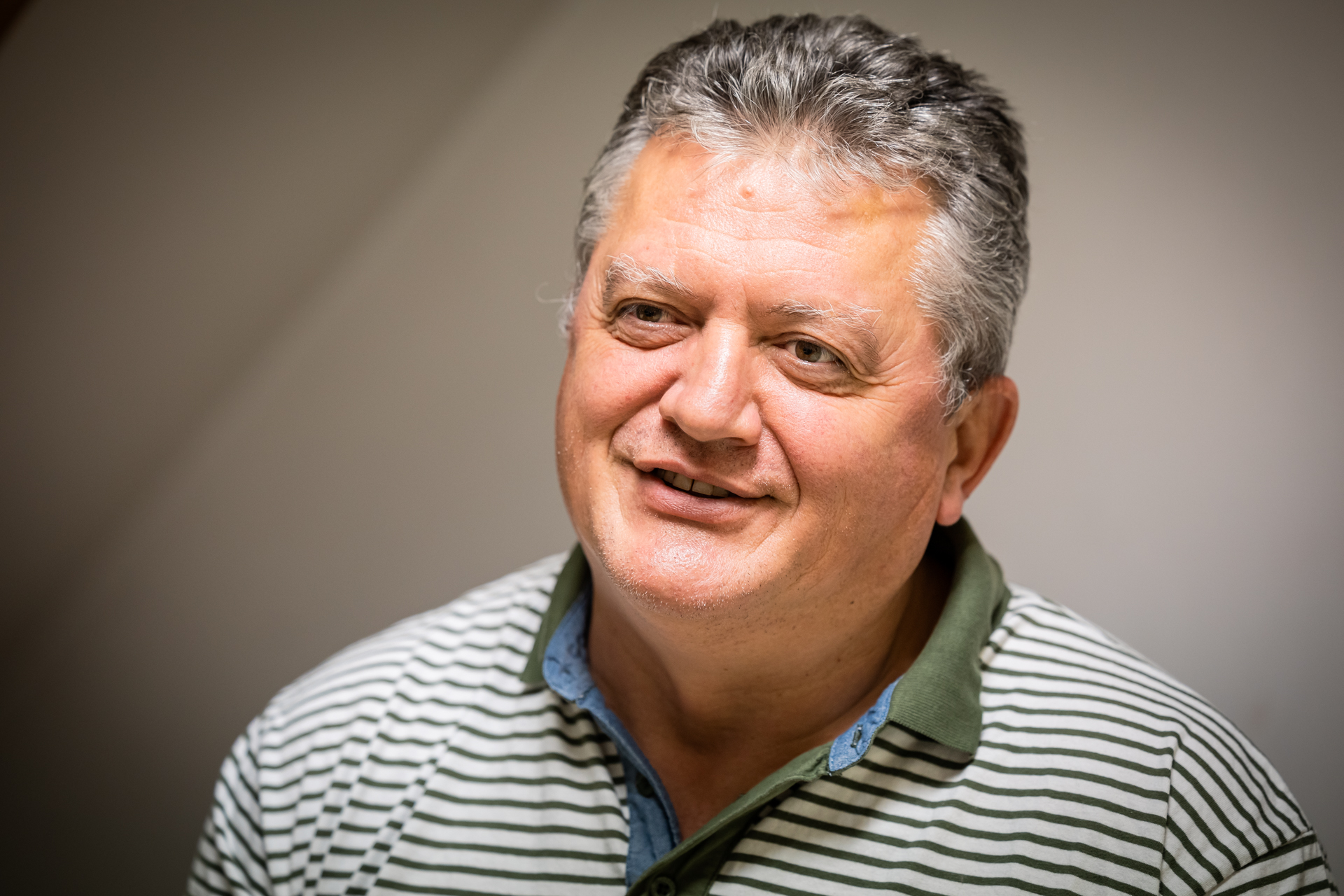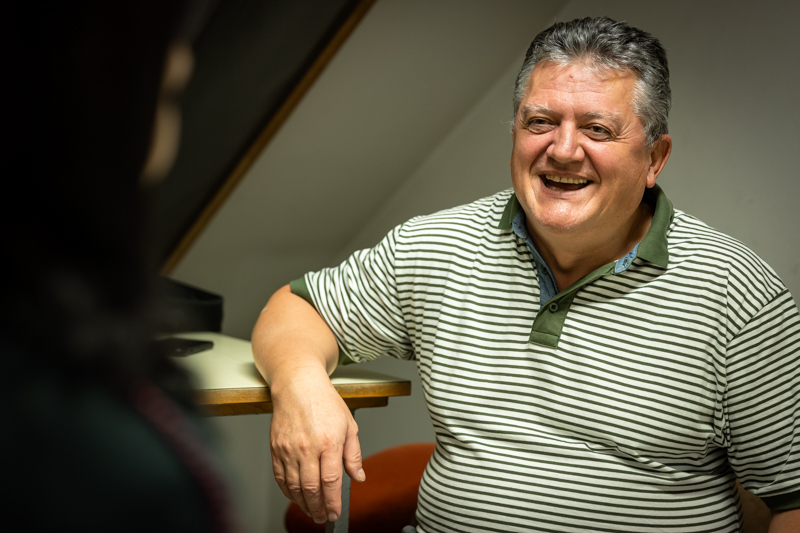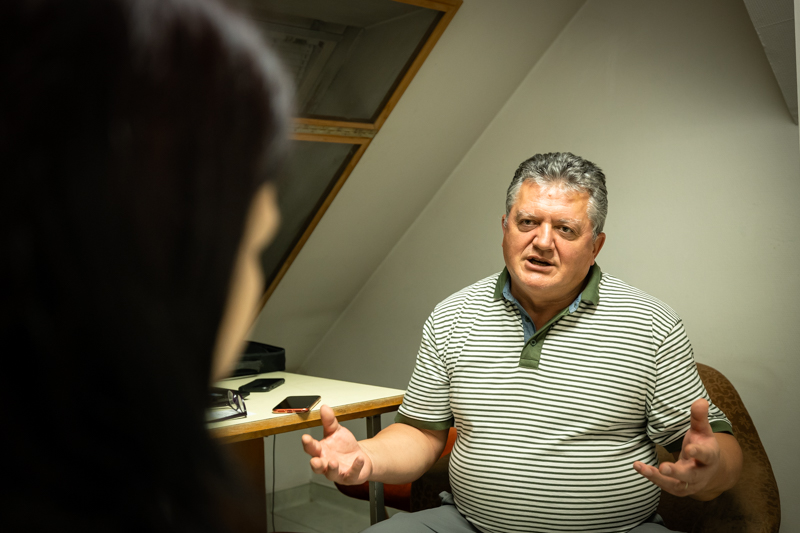
Saint Martin’s life stands as a symbol of selfless help, love, and kindness, especially in offering support to the vulnerable and children in need. This legacy lives on through the recipients of the St. Martin Award. Among this year’s honorees is Dr. Dénes Kovács, chairman of the board of the “Ray of Hope” Foundation for Children with Hematological and Oncological Diseases in the Southern Great Plain of Hungary. Through his daily work and unwavering dedication, he tirelessly strives to advance the recovery of children receiving treatment at the Hemato-Oncology Unit of the University of Szeged’s Department of Pediatrics.
The Saint Martin Award (Szent Márton-díj), established by the Benedictines of Pannonhalma in Hungary, is a unique recognition rooted in ancient Benedictine traditions. Its spiritual foundation lies in the teaching that we must recognize Christ in every person and treat our fellow humans as we would Jesus himself standing at the door. The award’s symbolism draws inspiration from the well-known legend of Saint Martin, who shared his cloak with a destitute beggar – an act that has become a timeless example of love, care, and compassion. Dr. Dénes Kovács emphasizes that this legend continues to serve as a guiding light for the “Ray of Hope” Foundation’s work to this day. This is underscored by the fact that the Saint Martin Award honors individuals and organizations that uphold Saint Martin’s ideals in their daily lives and are sharing with others and offering what the world needs most: humanity and hope.
A sense of security in the most difficult of times
The “Ray of Hope” Foundation for Children with Hematological and Oncological Diseases in the Southern Great Plain of Hungary („Reménysugár” a Dél-alföldi Haematológiai és Onkológiai Gyermekbetegekért Alapítvány) was founded in 1996 at the initiative of a parent whose child received oncology treatment in Szeged. During their journey, the family came to recognize the profound importance of a supportive community for both children battling illness and their families. From its inception, the Foundation has been committed to raising public awareness, with the goal of providing not only financial assistance but also a strong social safety net. Built through the collaboration of healthcare professionals, families, friends, and charitable businesses, this network offers a sense of security and vital support during even the most trying times.
Dr. Dénes Kovács notes that life’s most challenging moments ultimately reveal who are the ones to actually stand by us and provide genuine support. While many people with cancer feel let down by friends or loved ones they expected to rely on, the inaction or silence of others often stems not from indifference but from a deep sense of helplessness that prevents them from speaking up or taking action. Yet, there are always those who rise to the occasion, providing unwavering support even in the most difficult circumstances.
“Recovery, however, depends not only on external support,” Dr. Dénes Kovács emphasizes, “but also on inner determination, without which meaningful change is difficult to achieve.” Still, once recovery is attained, it is essential to recognize those who stood by us and to express our gratitude. This understanding, combined with the commitment to pass on the help we received, lies at the heart of the “Ray of Hope” Foundation’s mission.
“I believe that everything we experience in life – whether it’s hardship or the journey of overcoming it – comes with the responsibility to share the faith and support we were given,” says the Foundation’s chairman of the board.

Dr. Dénes Kovács.
Saint Martin Award: A recognition of humanity and hope
The Saint Martin Award highlights the importance of recognizing the needs of others and responding to them with heartfelt action. Indeed, helping can take many forms – be it financial support, personal care, nurturing the growth of a child or family, or leading by example through the dignified handling of our own struggles. More than that, this award not only celebrates individual acts of kindness but also symbolizes the power of a united community, reminding us that we all share a responsibility for the well-being of those in need.
Many people, however, burdened by their own struggles, feel unable to shoulder the challenges of others. “As long as we think this way, we close ourselves off from responding to others’ hardships with the sensitivity they deserve. Yet, compassion and empathy can often take root in the hardships or experiences we’ve lived through ourselves,” explains Dr. Dénes Kovács. He adds that such experiences can fuel a deeper inner quest, motivating us to give back the support we once received and to rise above ourselves, making meaningful contributions to the lives of others. This process is an essential part of our personal growth.
On the other hand, it is often believed that hope is nothing more than waiting for circumstances to improve. In truth, it means accepting and confronting challenges head-on, realizing that we have far more strength than we give ourselves credit for. “This is the message that guides our work: the goal is not to escape difficulties but to face them, learn from them, and emerge stronger to move forward.”
Even so, this is no easy task, as it is emotionally demanding and often leaves doctors and nurses grappling with feelings of helplessness and fear. “It’s important to understand that fear is natural, but true strength lies in shifting our focus to how we can help others. This perspective doesn’t just inspire us – it gives us the resilience to keep going,” says the psychologist. He adds, “It’s by learning from adversity and discovering our life’s purpose that we truly find our strength.”

Investing in equipment and creating uplifting experiences
Looking ahead, the chairman of the board emphasizes that the Foundation is always committed to providing the best possible environment for children undergoing treatment. As a result, their plans and goals are greatly influenced by the specific needs of the department, particularly when it comes to essential equipment. While having the right medical instruments is both life-saving and indispensable, ensuring the children’s emotional well-being is equally vital. Even during such a challenging time in their lives, it is crucial for them to have uplifting, enriching experiences.
Thanks to the Foundation’s community programs, the world opens up a little more for these children, bringing joy to those still in treatment and offering a sense of direction to those who have recovered. These programs help former patients find their footing and reconnect with life, guiding them to places where they can feel a sense of belonging and purpose.
Original Hungarian text by Tímea Fülöp
Photos by Ádám Kovács-Jerney

